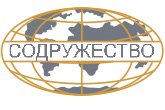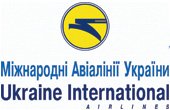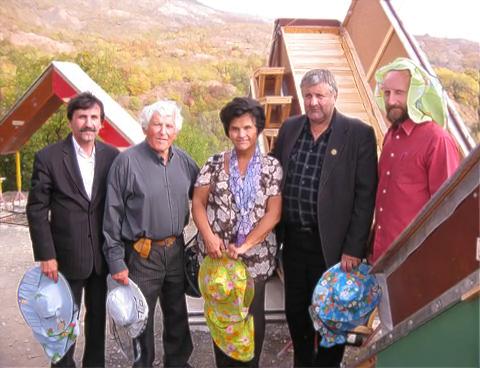 05 December, 2012
05 December, 2012
On October 4, 2012 the President of the Organizing Committee of the XXXXIII International Apimondia Congress Tetyana Vasylkivska together with the Secretary of the Organizing Committee of the XXXXIII International Apimondia Congress Serhiy Shmulia visited one of the interesting sites to be visited be the delegates of the Apimondia Congress 2013 – Farm “Svetoch” owned by Dr. Valeriy V. Sinelnikov. The farm is located in the picturesque region of Crimea, among magnificent mountains. On the initiative of the President of the Crimean non-governmental organization “Association of Beekeepers and Apiphytotherapeutists of Crimea, scientist and researcher Viktor I. Ovsyanyk and supported by Dr. Valeriy V. Sinelnikov, an apiary of bioenergy information technologies of health improvement was placed on the farm.
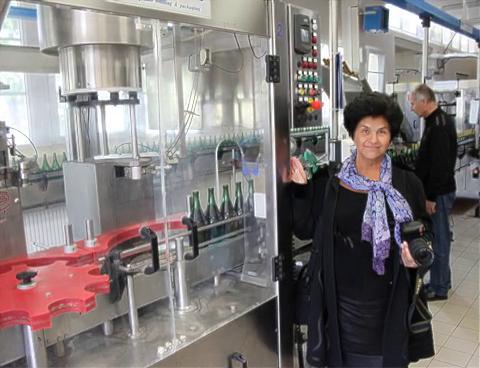 02 November, 2012
02 November, 2012
As part of participation in the XIX Apislavia Congress in Pszczela Wola, on September 23, the official Ukrainian delegation visited the company “Apis” (Lublin), which produces a wide range of drinking honey in the modern workplace. Ukrainian beekeepers visited company’s manufacturing facilities, where the technological processes, such as fermentation, blending, bottling of finished products aretaking place. The tasting of the best honey drinks was held. The members of the delegation had the opportunity to purchase products at the company’s store. All company’s product packages impress with its originality. In memory of themselves and Ukraine, Ukrainian beekeepers presented Polish colleagues with the album “My Ukraine” by the artist-publicist Leonid Denysenko.
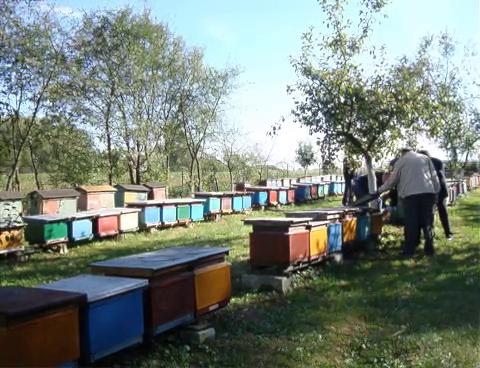 02 November, 2012
02 November, 2012
The official Ukrainian delegation in the framework of the XIX Apislavia Congress in Pszczela Wola visited a farm of Mr. Wieslaw Lad on September 23. The owner, his wife and his two daughters – all gave a warm welcome to guests and gladly showed their bee farm - apiary, shop where honey is pumped, shop where honey is packed, and of course – shop where everybody can buy products directly from the owner. Mr. Wieslaw kindly answered all the questions of Ukrainian beekeepers. He also told about themselves and his family, his community activities in the Polish Beekeepers’ Union (PZP) and his achievements in beekeeping. On behalf of Tadeusz Sabata – the President of the Polish Beekeepers’ Union (PZP) and the President of Apislavia, Mr. Wieslaw presented the Certificate of participation in XIX Apislavia Congress in Pszczela Wola to each participant of the Ukrainian official delegation. This ceremony ended with a photo at the owner’s farmstead. One of the members of the Ukrainian delegation Mykola Anastasiyovych Romanchenko, Ph.D., assistant professor, head of the department of integrated electrotechnologies and processes of Education and Research Institute of Electrical Engineering and Computer Technologies, Kharkiv Petro Vasylenko National Technical University of Agriculture presented to Mr. Wieslaw his own development for a hive. Tetyana Vasylkivska on behalf of the delegation presented Ukrainian souvenirs. Mr. Wieslaw’s mother treated Ukrainians to homemade pastries, Polish sweet-scented flower tea and coffee. Satisfied with a meeting with friendly and hardworking Polish family of beekeepers, Ukrainians departed to native Ukraine.
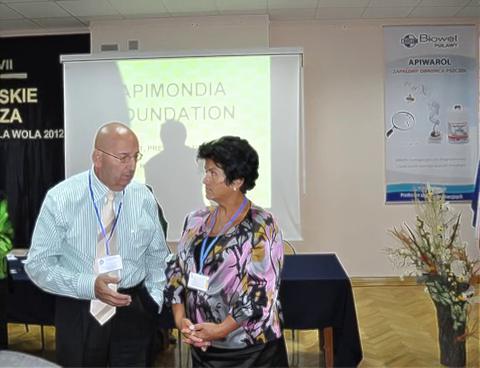 01 November, 2012
01 November, 2012
On September 20 and 22, during the XIX Apislavia Congress two meetings of the General Assembly of Apislavia attended by all heads of beekeeping associations—members of Apislavia were held in Pszczela Wola. Issues concerning the work of the Federation Apislavia, amendments to the statute and governing changes of Apislavia membership were discussed at the meetings, proper decisions andresolutions were adopted. The President of Apislavia presented a report to the participants and all the members of the meeting made a speech under the agenda of the Assembly.
The Vice-President of Apislavia, Director of the Beekeeping Institute of Apimondia in Bucharest (FIITEA) Cristian Constantinescu proposed to discuss and pass the amendments to the Statute of Apislavia. A few months before the Apislavia Congress heads of the associations — members of the Federation Apislavia received a letter from the heads and secretariat of Apislavia with a request to make amendments to the Statute of the organization. These amendments are caused by new terms of cooperation between beekeeping organizations in European countries. All amendments were discussed at the Assembly. As a result of discussion, the Statute of the Federation was amended and the new Statute with amendments was approved.
A speechby Tetyana Vasylkivska was dedicated to the activities of the All-Ukrainian NGO “Brotherhood of beekeepers of Ukraine” and preparation for the Apimondia Congress 2013 to be held in Ukraine in September-October 2013. Speeches made by the Vice-President of the National Union of Beekeepers of Kazakhstan Rukavitsyn Igor and the Chairman of the Beekeepers’ Union of Crimea Klochko Mykola were focused on joining the Federation Apislavia. Heads of the Turkish Beekeepers’ Association appealed to support their organization (Turkey’s candidacy) in autumn 2013 at the XXXXIII International Apimondia Congress in Ukraine in the process of struggling for the right to host Apimondia Congress 2017 in Turkey. According to the agenda, speeches were made by leaders of Belarusian, Czech, Slovak beekeepers’ associations and other participants of the meeting.
New members’admission procedureto the Federation Apislavia was held at the Assembly. The following organizations have become members of the Federation Apislavia: National Beekeepers’ Union of Kazakhstan (Kazakhstan), the Beekeepers’ Union of Crimea (AR Crimea, Ukraine) and the National Association of Manufacturers and Processors of Bee Products (NAViPP) (Russia).
We were sad at hearing the news about the final deprivation of Apislavia membership of the Russian National Beekeepers’ Union (Russia, leader — Butov O.A.) and the Beekeepers’ Association of Ukraine (Ukraine, Head — L.I. Bodnarchuk). These two NGOs actually lost their membership of the Federation Apislaviya in April 2012, when a meeting of the General Assembly of Apislavia was held in Ankara (Turkey). But the letters were sent to the heads of mentioned beekeeping organizations to renew their membership by at least paying 4-year debt of membership dues for 4-5 month. The two organizations mentioned above did not provide an answer regarding the desire to be members of the Federation and pay dues before the Assembly meeting of Apislavia in Pszczela Wola. The result of inactivity of the Russian National Beekeepers’ Union and the Beekeepers’ Association of Ukraine within the Federation Apislavia and violation of financial discipline in the Federation was the decision by the General Assembly of Apislavia in Pszczela Wola (Poland) to confirm the exclusion of these organizations from the Federation Apislavia. According to the Statute of Apislavia and its organizational rules, all the members of the Federation shall perform those functions in the organization of the Federation and pay membership dues. Those who do not comply with these rules and ignores them, find themselves outside the organization.
The draft Resolution of the Apislavia Congress was moved by the heads of Apislavia at the General Assembly of Apislavia. According to procedure, amendments and recommendations to the Resolution of the Apislavia Congress must be approved after some discussion. And this document will be sent to the European Parliament, Presidents and Ministers of agro-industry of all member states after signing by the members of Apislavia. The Resolution of the Congress contains recommendations of the European beekeeping community on changes and improvements in beekeeping practice of European beekeepers.
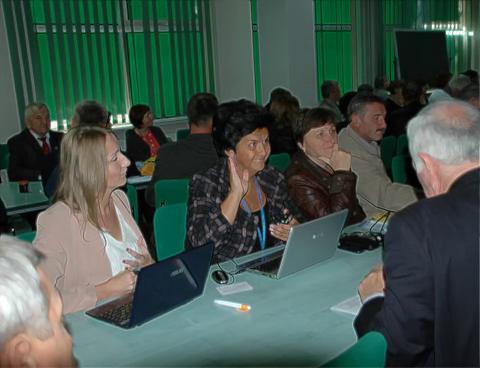 01 November, 2012
01 November, 2012
On September 21, during the XIX Apislavia Congress in Pszczela Wola a plenary meeting of the Scientific Conference “Modern Apitherapy” was held at the Congress-center of the Agricultural University of Lublin, which covered the following issues:
- Apitherapy in modern medicine, prospects of development.
- Therapeutic action of honey and their practical use in medicine.
- Perga and bee pollen-natural finest growth regulators and immunomodulators.
- Use of royal jelly in the modern treatment.
- Propolis in the prevention and treatment of diseases.
- Honey and bee products in reproductive medicine.
- Preparation women for pregnancy: how can help the honey and bee products.
- Apitherapy in modern preventive medicine-missed opportunities for medicine and beekeeping.
The official Ukrainian delegation was at full strength at the conference. The meeting was also attended by the President of Apimondia Gilles Ratia (France), the Chairman of the Apimondia Commission in Europe Philip McCabe (Ireland). Polish scientists, graduate students and representatives of Polish business organizations, delegates from Belarus, Latvia and Kazakhstan have also listened with interest to speakers. Moderator at the plenary session was Dr. Arkadiusz Kapliński.
Dr. Arkadiusz Kapliński and his fellow doctors and scientists dealing with apitherapy, provided participants with information on the apitherapy implementation in Polish doctors’ medical practice, demonstrated scientific developments and practical achievements. Dr. Arkadiusz Kapliński’s presentation concerned the use of bee products for pregnant women. Doctor also devoted much time to inform participants about the use of pollen and cerago in medicine and nutrition. Professor Ryszard Czarnecki spoke about the use of propolis, Professor Bogdan Kędzia in his presentation paid attention on the use of royal jelly in the initial stages of therapy, Dr. Jan Giza told about bee venom. Perhaps, Ukrainian delegates did not fully understand some points of the reports, because the speakers spoke Polish. But Dr. Arkadiusz Kapliński and interpreter Kateryna Idyartova have made every effort in order to ensure mutual understanding between speakers and listeners.
The President of the Crimean NGO “Union of apitherapeutists and beekeepers of Crimea” (APAC) Viktor Ovsyanik presented all the speakers and participants of the conference with his books. On the first day of the XIX Apislavia Congress, at the Opening Ceremony he gave the same presents to the President of Apimondia Gilles Ratia, the Chairman of the Apimondia Commission in Europe Philip McCabe, the President of Apislavia Tadeusz Sabat, the Vice-President of Apislavia Cristian Constantinescu, all heads of beekeeping associations of European countries, leading Polish scientists and public and political figures of Poland.
During the plenary conference session Dr. Arkadiusz Kapliński noticed a huge contribution of Mr. Viktor Ovsyanik's works to the promotion and the official integrating apitherapy into medical practice of Ukrainian physicians, thanked him for the books and wished inspiration and success in his work.
The products installation of various companies and firms engaged in the processing of bee products, honey packaging and manufacturing drinking honey was arranged for delegates of the XIX Apislavia Congress - participants of the conference in the lobby of the Congress Center of the Agricultural University of Lublin. Ukrainian beekeepers-delegates had a very interesting conversation at the University, at the presentation of this company with the representatives of one of these companies, namely representatives of "Apis".
The Scientific Conference of the XIX Apislavia Congress continued on 23 September in the assembly hall of the Apiculture College in Pszczela Wola. The participants had the honor to meet the President of Apimondia Gilles Ratia and listen to his speech at the Conference. The President of Apimondia paid attention to current problems in beekeeping worldwide, spoke about ways of solving a number of global beekeeping problems related to bee diseases, climate change, etc. Gilles Ratia made emphasis on the fact that the Federation has new members, new Continental Commissions are created and scientific symposia are held in different countries of the world. Beekeeping world community actively cooperates in mutual projects in order to settle strategic tasks of world beekeeping.







